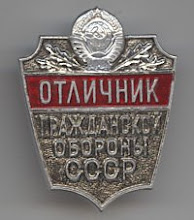Despite recent disagreements over the missile defense system, Ivanov said Russia and the U.S. must work closely together to combat nuclear proliferation. He suggested that old bilateral treaties between the U.S. and Russia on nuclear arms — like the Salt 1 agreement — should be replaced by multilateral agreements.
"It is imperative to ensure that the provisions of such a regime should be legally binding so that, in due course, it would really become possible to shift to the control over nuclear weapons and the process of their gradual reduction on a multilateral basis," he said.
Involvement of all major nuclear nations, he said, "is the essence of our proposals related to the anti-missile defense and to the intermediate and short-range missiles."
The significance? Firstly, the demand for multilateralism isn't new- the Soviet regime always hoped to suck France and the UK into the disarmament process. Whether these countries will be interested is an open question, but the real mystery is China. Would the PRC have any interest whatsoever? Getting all these countries to agree on a disarmament framework would be a tall order. Never mind Israel- the undeclared nuclear power whose arsenal probably merits it a place on a list of "major nuclear nations."
This does suggest that the Russians would like to discontinue the current treaties and start over, presumably with arrangements more favorable to their strategic interests. Russia would benefit greatly from both limiting the EU's nuclear capabilities and forestalling a potential Chinese nuclear arms buildup. In any case, the reality on the ground is very far from the idealistic visions of a nuclear-weapons free world circulating in the United States.

1 comment:
We will never, never stuff this demon back into Pandora's Box. Nuclear weapons will continue to be a major force in geopolitics until something worse comes along.
I happen to like them because it puts the politicians right on the front lines with everybody else's son.
Post a Comment